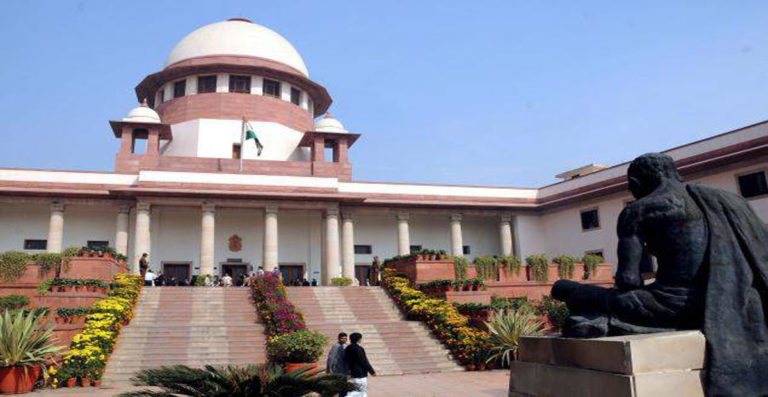There is no doubt that the concept of ‘PIL’ has been successful, to a huge extent, in enabling the unheard voices to be heard at the doors of Justice, in espousing the cause of the silent sufferers of the Nation having low visibility area of humanity, to be able to become a platform provider for the penniless to be represented judicially for their collective and public cause, but, at the same time, it is also not to be ignored at least, if not paid attention to, that this method of pursuit for justice is being turned into an agency of publicity seeking day by day, a battle for private interests and a gross misconstruction of the pure-intentioned judicially interpreted Constitutional doctrine. This is forcing the Supreme Court to put different nature of restraints in its use and to design a suitable mechanism to curb or diminish its gross misuse. These abuse had once compelled Justice Pasayat in the case of Ashok Kumar Pandey v. State of West Bengal to describe it as “busybodies, meddlesome interlopers, wayfarers or officious interveners who approach the court with extraneous motivation or for glare of publicity”. Despite, several adverse judicial comments on its blatant misuse, the phenomenon continues unabated even today.
In recent turbulent time, mutual relationship between the people and the judiciary needs to be strengthened further more, because despite all its drawbacks it is the judiciary which has almost always stood with the people and for their cause.
India has been witnessing a gigantic increase in the activism of all kinds, more particularly after the Supreme Court pronounced to give ‘Public Interest Litigation’ an operational shape and a functional character, in the existing Indian Judicial and Constitutional framework, around 1980s. The Country has seen a sharp rise in activism since then, bolstering the confidence of every citizen to be a crucial player in the justice delivery system of the Nation. The concept of ‘PIL’ and its translation into actions has put on the shoulders of higher judiciary, an enormous amount of responsibility and hope, a responsibility to defend those in whose name the Constitution of the Country runs the system, and a hope of them who in the Constitutional language have been termed as ‘We, the People’.
The people have certainly got a sense of strength and empowerment through this. This has indeed enhanced poor people’ confidence in the judicial system and have made them realize that to be heard at the doors of justice is not just the prerogative of mighty and moneyed. This is undoubtedly a laudable legal objective.
The concept of ‘Public Interest Litigation’ has moved far beyond its imagined significance and permissible boundaries in terms of ideas, empowerment and confidence but sadly overconfidence too. In the time, where the Supreme Court itself is becoming critical of its own judicially derived doctrine because of its noted neoteric rampant abuse for private, political and corporate interests, we do not just need to seriously debate it but also attempt to ultimately address the real concerns before this trenchant tool of public welfare is ultimately diluted, made blunt or rendered ineffective. It requires a deeper introspection on our part.

There has been several suggestions to effectively prevent the misuse of ‘PIL’. The prominent of them being, the recommendations put forwarded by the former Attorney General of India and a jurist of eminent stature, Soli. J. Sorabaji. He suggests:
(a) Reject dubious PIL at the threshold and in appropriate case with exemplary costs.
(b) In cases where important project or socio economic regulations are challenged after gross delay, such petitions should be thrown out at the very threshold on the ground of latches. Just because a petition is termed as PIL does not mean that ordinary principles applicable to litigation will not apply.
(c) PIL petitioners should be in strict terms such as providing indemnity or giving an adequate undertaking to the Court to make good the damage, if PIL is ultimately dismissed.
I concede that the above suggestion may well be efficient in checking the frivolous petitions to a great extent, but this is not an absolute guarantee too. The judiciary of course has the primary burden of showing the door to a frivolous petitioner who knocks at its gates for false justice, but we the people as a prime stakeholder in this entire process, cannot simply exonerate ourselves from the ethical responsibilities that we as the sovereign citizens of this celebrated democracy carry with our Conscience. This is indeed sad and tragic that the judicial concept that once helped people boost their confidence in the judicial system is gradually reaching a stage where the confidence of the judiciary itself is shaking in the public because of the misdeeds of the few with extraneous motives.
Recently, the SC/ST Act, the anti-atrocities legislation, has come under the scanner of the Supreme Court of India where it had to issue guidelines to deal with the frivolous complaints lodged specifically with the purpose of harassing the individuals and the government officials. Now, I ask, who is really responsible for it? It’s certainly not the Supreme Court as multiple MSM Newspapers Op-eds want us to believe. The responsibility is entirely on the shoulders of the masses for whose protection it was meant and who failed to accept it in its true spirit, as any law of the land is not meant to be used for taking revenge and satisfy someone’s ego. The Courts, after all, have to treat all citizens equally and take care of the fundamental rights of every citizen, regardless of their different identities.
Therefore, in the matter of ‘PIL’ too, the people at large must speak up against its increasing rampant misuse. They need to firmly stand against the vested interest milking it for their own private gains. The confidence of the judiciary in the public cause must not lessen in this turbulent times because of certain unethical litigants. This mutual relationship between the people and the judiciary needs to be strengthened, because despite all its drawbacks it is the judiciary which has almost always stood with the people and for their cause.
In the end, I understand, that there are many ‘Khadag Singh’ among the citizenry of the Nation, who are trying to erode the trust developed between the people and the judiciary for their cheap private motives, but at the same time, I suggest, that instead of trying to search grounds to make the great weapon of espousing public cause less effective, the Supreme Court too must learn something from ‘Baba Bharati’ in the story of ‘Haar Ki Jeet’.
Read More : Judicial pendencies are due to the lack of the judges?



